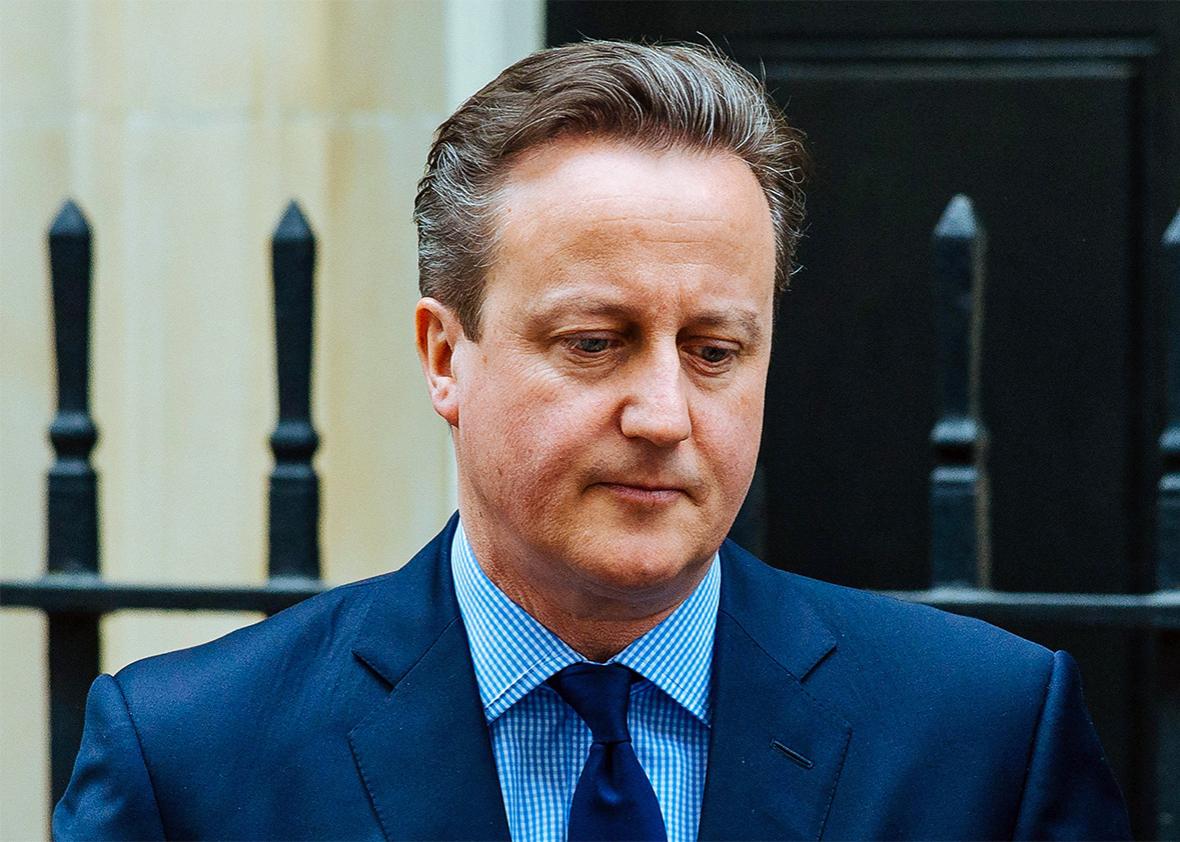EDINBURGH, Scotland—Even amid tragedy, politics never ceases. And so, earlier this week, as officials in Brussels were still counting the bodies some in Europe moved on from the immediate horror of the bombings themselves—these are becoming routine, after all—to contemplate the impact this latest affront might have on another issue altogether. That is, would this latest act of terrorism make it more or less likely that Britain would vote to leave the European Union and do great harm to the long-term viability of the European project?
Almost everything in British politics right now is seen through the prism of June’s referendum on the country’s continued EU membership. David Cameron’s future as prime minister—and a good chunk of his historical legacy—hinges on the outcome. But that, in truth, is a lesser matter than the greater question of whether the referendum can help answer a much larger pair of questions: What kind of country is Britain, and what is its role in the world?
Britain’s relationship with Europe has always been provisional and contractual; almost no British politician talks about the values of the “European project.” British enthusiasm for the EU is almost entirely restricted to the as-yet-unfinished creation of a common market. Resentment of European regulation and European law runs deep, threatening to trample on what eurosceptics like to consider ancient British liberties.
Some Eurosceptics, keen to use any event to maximize the chances of Britain voting to leave the EU, were quick to spot the opportunity afforded by the carnage in Brussels. Mike Hookem, a U.K. Independence Party (Ukip) member of the European parliament, issued a statement claiming that “This horrific act of terrorism shows us that Schengen free movement and lax border control are a threat to our security.” The U.K., as it happens, is not a part of the Schengen zone, an area made up of 26 European countries where border controls have been abolished, but the point was clear: Being in the EU makes it more likely something like this will happen here. Never mind that the last major attack in Britain—the July 7 attacks in 2005 that killed 52 Londoners—was plotted and carried out by native-born English Islamists. Nuance is the first casualty of politics and, too often, decency is the second. Hookem elaborated on his point, tweeting that “Cameron says we’re safer in the EU. Well, I’m in the centre of the EU [in Brussels] and it doesn’t feel very safe.” Nigel Farage, Ukip’s leader, cautioned that it might have been wise to wait “a few hours” before expressing such sentiments but Hookem was “not wrong.”
Other Eurosceptics agreed. According to Michael Howard, Cameron’s predecessor as Tory leader, “The European Union, in its current form, is a flawed and failing project which is making many of its inhabitants poorer than they should or need be and is failing to keep its people safe.” George Eustice, a Eurosceptic minister in Cameron’s government, warned that the Schengen agreement on borderless travel allows “terrorists to move around freely.” Only by leaving the EU, they argue, could Britain regain control of its frontiers and protect its citizens.
And what do those who want to remain in the EU say? Even before the bombs went off in Brussels, Home Secretary Theresa May was warning, “On the security front there are good reasons for us to be members of the European Union.” Leaving the EU would not end cross-border cooperation with regard to policing and counterterrorism, but it would, she said, complicate that cooperation. “The UK threat level is at severe, which means a terrorist attack is highly likely. We know that since November 2014 seven terrorist plots have been disrupted in the UK. What’s important is that we work with others to ensure that we can respond.” For his part, Cameron suggested only that it was “inappropriate” to link the Brussels attacks to the referendum campaign.
It is hard to imagine a worse set of circumstances for the “Remain” side of the argument than another terror attack in Europe and headlines about European leaders being unable to handle the threat of ISIS. This only adds to the growing sense that there is something rotten in Europe right now. The stifling effects of European Central Bank–enforced austerity might have been most keenly felt in southern Europe, but the impact of the fiscal straitjackets imposed on Greece and Spain has been felt elsewhere too. It has undermined whatever sense of common endeavor the European project once possessed. And it has led to a diminished enthusiasm for all things European on the left, a disillusion that now threatens to match the right’s longtime suspicion of Brussels.
Worse still, the migrant crisis for which Europe has yet to find any kind of meaningful solution provides the backdrop for Cameron’s ill-starred referendum. Combine a spluttering economic recovery with seemingly uncontrolled immigration—from both within and outside of the EU—and fear of terror, and you get the conditions for a populist revival.
Britain’s Eurosceptics argue that they are not calling for disengagement from the outside world. They stress the liberating advantages of removing Britain from the EU, envisioning a powerhouse nation free to negotiate its own trade deals around the world. Far from being isolationists, they consider themselves internationalists. By contrast, Cameron and his colleagues in the Remain campaign, fear that leaving the EU would diminish Britain’s influence in the world. The debate is, at its core, a conflict between two different conceptions of sovereignty in an already highly connected, globalized modernity.
Cameron argues that EU membership allows Britain the best of both worlds: in the club for the decisions that matter but not subject to the EU’s most onerous responsibilities (such as Schengen). That remains a precarious balancing act, however, and one that’s even more difficult to maintain in the face of tragedy. It should not be a surprise, then, that after bombings in Paris and Brussels, Brexit, once thought unthinkable, is now more thinkable than ever.
